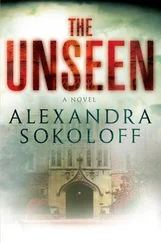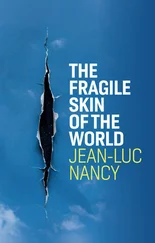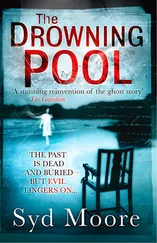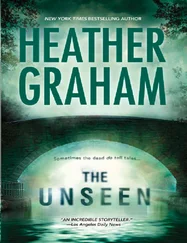William laughed again, and then was quiet. “You’re funny,” he pronounced finally. “You’re smart, too. I think you’re probably smarter than anyone I’ve ever met.”
“No, I’m not,” said Ada. “I am not.”
He was very drunk. The laces of his sneakers were undone and he leaned forward to tie them and nearly slipped off the bed. He caught himself by putting a hand on the floor. “Oops,” he said quietly to himself.
When he had tied his shoe he sat back up and, in one fluid motion, put his hand on Ada’s knee. He did not look at her. She looked at his hand. It was large and smooth. It was still young-looking: it did not have the hardness of an older person’s hand. Only one vein was visible beneath the skin, blue and winding, and she thought about the systems of the body, the vascular web that kept the flesh alive. She had studied it with David.
Ada decided that she did not want his hand there, and was thinking of ways to remove it, when, suddenly, he put it elsewhere on her body: first around her shoulders, and then on her back, which he stroked for a time in long downward arcs. It reminded her of how David had taught her to calm lobsters. William’s movements were not graceful, and he did not look at Ada while he made them, as if his left hand were disembodied from the rest of him. It wandered on its own. She sat very still. She thought about simply standing up from the bed, but she lacked the courage to do it. Should she like this? William Liston was touching her. It was what she had been dreaming of for years. She was not certain. The gin made everything seem distant: an echo of itself.
Suddenly William turned and moved toward her, his face toward hers, and pressed his mouth on her mouth. It was quick and unexpected. It was her first kiss. The temperature was what surprised her most: she wasn’t certain what she had imagined, but it was not this. Perhaps she had imagined William Liston’s mouth as being cold, cool, like the rest of him; but this was something lukewarm, neither hot nor cold. With his tongue he was pushing her lips apart. All of his smells were closer now, too: cigarettes and gin and the outdoors. And his skin, his flesh, the hair on his head. All of it, as close to her as she was to herself.
He had enough hair on his face to shave it: she had seen him once or twice in the bathroom, in his towel. She had caught his eye in the mirror. Now his chin scratched her, his cheeks.
Her hands were frozen at her sides, in little fists. She had seen in movies that people touched each other’s faces, or bodies, while kissing, but a deep and paralyzing fear had come over her and she could not move.
He leaned forward and she fell back on her elbows.
He put his other hand on her, too, over the sweater that David had bought her.
She became aware of his physical size, something she had always found attractive, in a way that alarmed her.
Later, wishing it had been, wishing somehow to rewrite history, she would tell ELIXIR that fumblingly kissing William Liston on her bed had been romantic and exciting, the sudden unexpected fulfillment of all of her fantasies, better than anything she could have imagined. But this was untrue. If she had been honest, she would have told ELIXIR that kissing William Liston was halfway in between nice and not-nice. It stirred something in her, some ancestral memory of closeness and intimacy, some instinctual response. She had not been so physically close to another person since her infancy. She had rarely even been hugged. When she was older, she would remember the episode with a mix of pleasure and discomfort. The scratching of a man’s rough chin across her cheeks would shuttle her unstoppably into a sense-memory of William Liston, and for a pause she would recall, not unfondly, her own young longing for him and its unfortunate fulfillment. But now her brain was working too quickly, and her heart was pumping too fast, and she knew herself to be too young for this, or too young for him, and she was frightened and ashamed.
The muscles of her abdomen tensed; she worked to stay upright as he guided her down. He ran a hand down her face and front and side. There was not much there for him to grasp and there never would be, but she did not know this then; she only thought she was deficient in some way, or that she was not grown-up enough, and that now he knew. He had found out her terrible secret. She wanted almost to apologize. She imagined simply standing up, walking out of the room, but somehow it felt too late. She imagined curling up into a ball and asking him just to cradle her, to be still with her, to leave his hands on her, unmoving, to mother her.
And then she thought of Melanie and realized that invoking Melanie’s name would save her. It wasn’t true — it wasn’t any concern for Melanie that made her want to end what William was doing, but it felt to her at least like a valid excuse. Melanie’s my friend , she could say. We have to stop . It would not have been embarrassing to say this.
She felt William’s hand on the button of her jeans. But before she could deliver her line, the door to her bedroom opened. She punched William’s shoulder hard. The two of them struggled to sit up.
There in the doorframe was Gregory, his mouth open, his face drained of color. In his right hand he was holding the key to David’s house that Ada had given him. His left hung down limply at his side.
“What the hell,” said William. It was the same phrase he had used when Ada caught him kissing Karen Driscoll, the first night she had ever slept at Liston’s.
“Get the fuck out, Greg,” said William. But his brother didn’t move, and after a pause William stood up quickly, threateningly. He moved toward Gregory. For several beats, the two brothers stood facing one another, framed by Ada’s doorway, William head-and-shoulders taller than his brother.
Ada waited. She was certain that Gregory would duck his head and go. She had seen him do it before when confronted: in the hallway at Queen of Angels, when charged at by a peer; in the hallway at Liston’s house, when he was being persecuted by William or even, sometimes, by Matty. But now he didn’t flinch. William, still drunk, swayed slightly. And then, abruptly, he left, knocking into Gregory on his way out, surprising Ada. She did not know what outcome she’d expected, but it was not that. William said nothing before going. Not to his brother; not to her. They heard his footsteps as he pounded down the stairs. The hard slam of the kitchen door.
Ada struggled to sit up. She did not want to look at Gregory. She felt that she was now on the other side of an unbridgeable chasm from him. One of his persecutors. A traitor to her kind. She felt simultaneously ashamed and self-righteous. Why are you here , she wanted to demand, but before she could she realized the answer: It was that he had been worried about her. He had somehow noticed her absence in the house, and had come looking for her.
For several moments, neither of them moved. Gregory was the first to speak.
“Why did you do that,” he said, with a viciousness she had not expected. There was a ragged edge to his voice; his breathing was labored.
She looked up at him.
“None of your business,” she said.
“Do you like him,” said Gregory. His brow trembled; he squinted.
“I don’t know,” said Ada.
“I hate him,” said Gregory. “He’s a fucking idiot.”
Ada saw then that he would cry, and she looked away, embarrassed.
“I thought maybe you were smart,” said Gregory. “But I was wrong. I think you’re a fucking idiot too.” He was young, still. Before her eyes, he was transforming, becoming the Gregory she knew from school: the spiteful, petulant child, the small bullied boy who lashed out wildly at his oppressors. He was crying, now, but fighting it; his face was red and bunched.
Читать дальше












